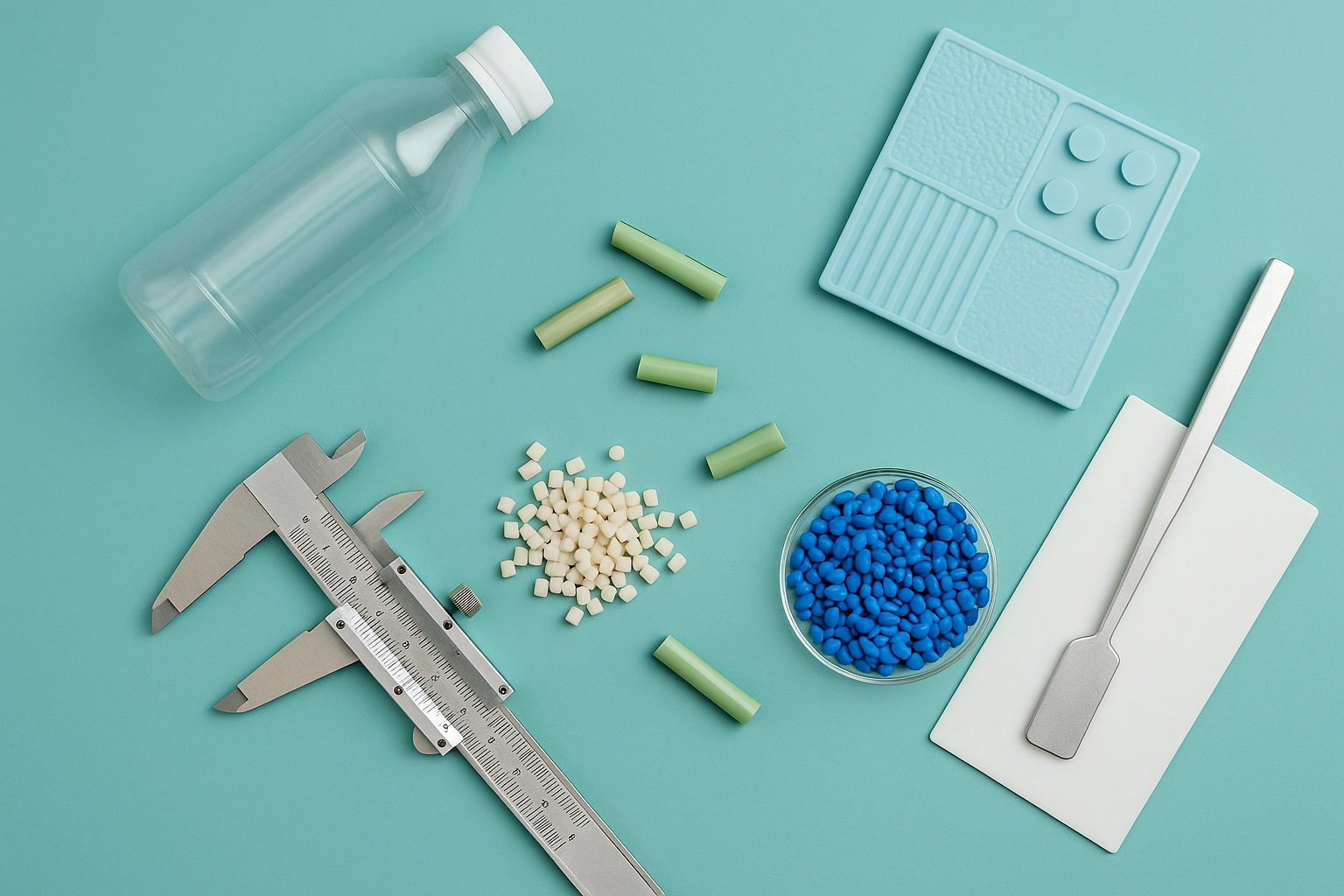Polymer & Plastics Testing
In today's manufacturing landscape, polymers and plastics play a critical role in the development of durable products that are lightweight, flexible, and cost-effective. Polymer and plastic materials are used in a wide range of sectors including automotive, electronics, consumer goods, packaging, and healthcare.
The quality assurance and reliability of these materials can significantly impact product performance and safety. Our laboratory specializes in providing comprehensive polymer and plastics testing services to ensure that products meet the highest industry standards. Whether you're developing new materials or ensuring compliance with regulatory requirements, our team of experts uses advanced analytical techniques to provide accurate and reliable test results.
Our testing capabilities cover a broad spectrum of properties including mechanical strength, chemical resistance, thermal stability, impact resistance, and biocompatibility for medical applications. We adhere strictly to international standards such as ISO, ASTM, EN, IEC, and others to ensure the accuracy and consistency of our test results.
Our team comprises seasoned professionals with extensive experience in polymer science and materials engineering. They stay abreast of the latest trends and technologies to provide you with up-to-date insights and solutions. Our services are designed to support your research and development efforts, quality control processes, and compliance requirements.
Here at our laboratory, we offer a full suite of testing options tailored specifically for polymers and plastics. These include but are not limited to mechanical testing (tensile strength, flexural modulus), thermal analysis (melting point, glass transition temperature), chemical resistance testing, and biocompatibility assessments.
We understand that every client has unique needs, so our approach is highly customizable. From initial consultation through final report delivery, we work closely with you to ensure your specific requirements are met. Our goal is not only to provide accurate test results but also to offer valuable insights into the performance characteristics of your materials.
To summarize, our polymer and plastics testing services encompass a wide array of mechanical and chemical properties analyses aimed at optimizing material performance while ensuring compliance with relevant standards and regulations.
Scope and Methodology
| Test Type | Description | Standards |
|---|---|---|
| Tensile Testing | Determination of tensile strength, modulus of elasticity and elongation at break. | ASTM D638, ISO 527-1 |
| Flexural Testing | Evaluation of flexural strength, modulus of rupture and deflection. | ASTM D790, ISO 178 |
| Impact Testing | Measurement of impact resistance using notched or un-notched specimens. | ASTM D256, ISO 180 |
| Thermogravimetric Analysis (TGA) | Determination of thermal stability and decomposition temperature. | TGA specific standards as per sample type |
| Infrared Spectroscopy (FTIR) | Identification and quantification of functional groups in polymers. | ASTM E1252, ISO 16712 |
Why Choose This Test
- Precision and accuracy in test results.
- Compliance with international standards ensuring global acceptance of your products.
- Customization to meet specific client needs and project requirements.
- State-of-the-art facilities equipped with the latest technology for thorough analysis.
- A dedicated team of experienced scientists providing expert advice throughout the testing process.
- Rapid turnaround times without compromising on quality.
- Comprehensive reports and detailed explanations of findings to facilitate informed decision-making.
Quality and Reliability Assurance
The quality assurance process in polymer and plastics testing involves several key steps aimed at ensuring accuracy, reliability, and consistency. These include careful specimen preparation, adherence to rigorous procedural guidelines, utilization of high-precision equipment, and strict calibration protocols.
Specimen preparation is crucial as it directly influences the outcome of any test conducted. Proper cleaning, conditioning, and shaping ensure that tests accurately reflect material properties rather than surface irregularities or contamination effects.
Absolute adherence to procedural guidelines is paramount in maintaining quality assurance standards. Our team follows all relevant ISO and ASTM protocols meticulously ensuring that each step from sample selection through final analysis adheres strictly to predefined specifications.
High-precision equipment plays an integral role in achieving precise measurements during testing. Regular calibration ensures these instruments remain accurate throughout their operational life, minimizing potential errors due to drift or wear.
Our commitment to quality extends beyond just instrumentation; we also invest heavily in training our personnel continuously updating them on the latest advancements in polymer science and material engineering practices.
In conclusion, our robust quality assurance framework guarantees consistent high-quality results that can be trusted for making informed decisions about your materials' suitability across various applications.





